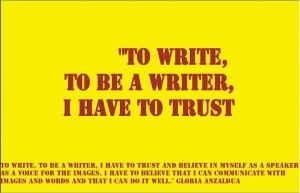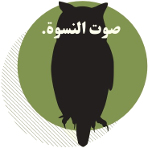
Is writing a desire to confess? A cry in the dark, a desire to be known, to be read? In her 1997 essay, quoting the poet Muriel Rukseyer, the American poet and social activist Adrienne Rich said, “If there were no poetry on any day in the world… poetry would be invented that day. For there would be an intolerable hunger.” Sometimes this hunger to leave a mark of one’s existence seems like some sort of perverse willfulness. At other times, it becomes absolutely necessary.
I write in order to heal my brain, organically. We create stories and re-create them, every few months, it seems, to deal with the shifting and boiling temperature of inner life. In this “white heat” of writing, time dissolves and the past and the future converge into one moment where the tip of the pen meets the paper. (Or when the mechanical imprint of the character appears on the screen; the pseudo-ink?) In writing, I am calm, I hope I am calm. I will tell myself that everything is smooth, has a surface, is reflective… Keeping a journal allows one to chart the ups and downs of daily life as well as the divisions between our personal, professional, relational and private lives. Where poetry breaks down these barriers in a flash of insight, narratives can build them back up.
If I had to choose, I would choose to sing rather than to write. What is it about singing that cuts to the heart, that opens an immediate pathway between the singer and the listener? A song appears once and is gone, it is bound to a particular moment in time and to a place, a stage. All of the feelings, moods, and vibrations of an experience pulse together when listening to a song performed live. It strikes me that a singer onstage (or a spoken-word poet for that matter) is like a political activist delivering a speech. She cannot cling to her mantle, her power, after using it or else it becomes a shroud. She knows that her power lies in mediating between the world and power, and that is her gift.
Justice, to me, is a big tawny bird with feathers of copper and gold. She eats truth, she is a woman covered with blood, having birthed herself and cut the cord. She is a painter, an image weaver, singing out her reel of films and string… the bird filled with mercy, a woman in a cup, a ribbon, smiling wholly, she erases everything and sings her own song, like the phoenix, who appears to sing out its unique song, to make words into arrows and into necklaces to celebrate what is being done right and all the work left to do. For, “[f]reedom is not necessarily a path, it is an ether into which one plunges… where one merges with what was held back from ecstasy…”2 If writing were not political/ i would tear my hair out/ it’s not delicate, aesthetic butterfly/ wings coated with a fine silver dust/ it is not the underside of clouds…
As a woman I have been inspired by writers, song- makers, artists and poets. I suppose what I always shouted at my brother, “it’s not fair!” is still the guiding truth of my life. It was this choice that propelled me to switch majors from Comparative Literature to Anthropology. I wanted a discipline more in tune with political and cultural life. The political theorist and philosopher Hannah Arendt named the joy one experiences when acting in public, “public happiness.” Public happiness is the great treasure of all of those who live through revolutionary times and feel the exhilaration of acting in such a way as to make a difference in the world. One sees the joy in the faces and voices of the protesters. However, this is not true, re: Arendt, that the signposts we used have worn away; they have just been re-invented, re-inscribed with new meanings. Anthropology, then, has more in common with archaeology than I thought. We dig up forgotten meanings, excavate and brush off old concepts and forgotten texts that may help us to see the world we live in a new light.
We know that one cannot live by bread alone, but writing, in particular academic writing so often seems an unnecessary embellishment on top of the sounds and speech of everyday life. At the same time, as academics, as teachers and writers, we must be responsible witnesses, to try to create platforms for thought and reflection. Academics must be activists in this era of propaganda and spinning of truths so that our own faces are no longer recognizable in the stories we are forced to create or tell about ourselves in order to pass muster with the architecture of corporate life. We must create a world where knowledge can flourish and help to build society, rather than serve destruction and war.
Our bureaucratic institutions thrive on cultures of paperwork. We gather facts and we sort them and file them. Our libraries fill with books. Yet, at a certain point, the time for writing must come to an end. It is not acceptable anymore to bear witness to the daily injustices. We must translate our ethics into practice, in the very slippery and incomplete ways that they must be. The time for careful discourse is over, we must say something, anything. It is time to go down to the streets. If you are not willing to put your body where your mouth is, then your words have no real meaning. Writing must live between the body and speech. It must live as a text. It is to this end that we write, again and again, because the distance between experience and expression is always too big a gap.
Publisher:
Section:
Category:






